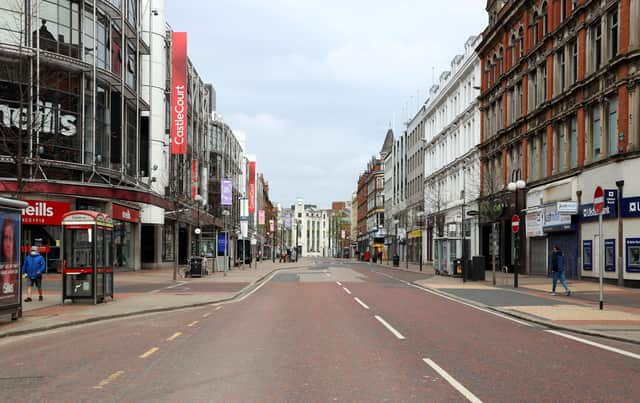Coronavirus: Breathe easy? Reports that lockdown is fuelling cleaner, better air across NI


The news comes as US oil producers paid buyers to take oil off their hands over fears that storage capacity is running out under global lockdowns.
The News Letter recently reported that heating oil and car fuel prices in NI had also plummeted due to lack of demand.
Advertisement
Hide AdAdvertisement
Hide AdBelfast City Council advised the News Letter that air quality across the city currently falls within the “low” pollution banding. Green Party deputy leader, Malachai O’Hara, said it would take time to be able to look at the full trends for 2020 and draw firm conclusions.
“However, many of us feel that the air is cleaner, we are breathing easier since lockdown,” he said. “Anecdotally, many people are also taking about improvements in their asthma or other respiratory illnesses.”
He noted that under lockdown people have connected with colleagues and family online, worked from home and walked and cycled like never before.
“Let’s take the opportunity to reimagine our society and make the change for a happier, healthier future for all citizens,” he added.
Advertisement
Hide AdAdvertisement
Hide AdDr Peter Leavitt, Canada Research Chair in Environmental Change and Society at Queen’s University Belfast, spoke to the News Letter after looking at the 60- and 90-day graphs for pollution levels in Belfast.
“The clearest sign of improved air quality is the decline in nitrous oxide in the last month,” he said.
“Basically, nitrous oxides are produced by combustion of fossil fuels. The nitrogen is an impurity in the fuel and it is converted to various oxidized forms when burned.”
He added that the decrease is “consistent with the lockdown reducing fossil fuel use by cars and industry” but added that it was too soon to say it is statistically significant.
Advertisement
Hide AdAdvertisement
Hide AdThe Department of Agriculture, Environment and Rural Affairs agreed that nitrous oxide levels had been dropping, but said there was no evidence that lockdown was the cause; more time was needed to draw firm conclusions as this had been happening since January.
“The levels largely follow the average annual trends experienced in NI in the last five years,” it said. “A significant drop in NO2 [nitrous dixide] was not experienced following lockdown.”
Instead it said that since the start of the year, there had been increasing toxic fine particles in the air, from domestic wood and coal burning, industrial combustion and road transport, prompting it to issue a warning of “moderate” pollution on April 9.
Friends of the Earth campaigner Jenny Bates had expected vehicle-emitted nitrogen oxide to be “generally lower” under lockdown. She also agreed there had been high levels of fine particle pollution, saying this is often caused by seasonal farming.
A message from the Editor:
Advertisement
Hide AdAdvertisement
Hide AdThank you for reading this story on our website. While I have your attention, I also have an important request to make of you.
With the coronavirus lockdown having a major impact on many of our advertisers - and consequently the revenue we receive - we are more reliant than ever on you taking out a digital subscription.
Subscribe to newsletter.co.uk and enjoy unlimited access to the best Northern Ireland and UK news and information online and on our app. With a digital subscription, you can read more than five articles, see fewer ads, enjoy faster load times, and get access to exclusive newsletters and content. Visit https://www.newsletter.co.uk/subscriptions now to sign up.
Our journalism costs money and we rely on advertising, print and digital revenues to help to support them. By supporting us, we are able to support you in providing trusted, fact-checked content for this website.
Alistair Bushe
Editor